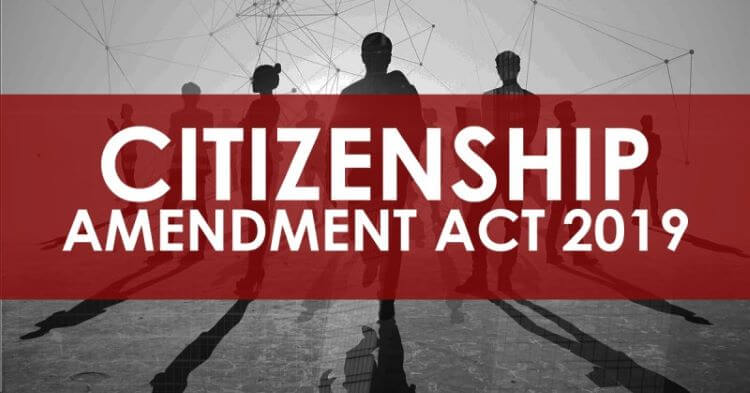Top Insights
What is Citizenship Amendment Act (CAA)? Know more about CAA rules, Eligibility, procedure, language Clause

On the 11th of March, 2024, amidst a backdrop of sustained public demonstrations, the Indian administration made public its formal adoption of the rules for the Citizenship Amendment Act (CAA), signalling a significant advancement in the law’s execution process. The Ministry of Home Affairs (MHA) elaborated on this pivotal move, announcing the establishment of the Citizenship (Amendment) Rules, 2024, under the auspices of the Citizenship (Amendment) Act, 2019. This regulatory framework is devised to streamline the application procedure for individuals who, under the stipulations of the CAA-2019, are deemed eligible to pursue Indian citizenship.

In a pronounced declaration of intent, Union Home Minister Amit Shah, at the ET NOW Global Business Summit in February 2024, reinforced the government’s steadfast resolve to bring the CAA to full fruition before the electoral fray. He underlined the legislative piece as a cornerstone of the government’s pledged agenda, dispelling any ambiguity regarding its impending implementation.
Rooted in the Bharatiya Janata Party’s (BJP) electoral manifesto of 2019, the CAA’s primary objective is to extend Indian citizenship to persecuted religious minorities from Pakistan, Bangladesh, and Afghanistan, notably excluding Muslims. This legislation, ratified by Parliament in December 2019 and subsequently endorsed by then-President Ram Nath Kovind, encountered procedural delays in its rule-setting phase, with the intervening COVID-19 pandemic cited by the MHA as a principal deterrent to its timely execution.
The introduction and subsequent enactment of the CAA have been marred by controversy, igniting widespread protests across the Indian landscape. A notable manifestation of dissent was the prolonged sit-in at Delhi’s Shaheen Bagh, which emerged as a symbolic epicentre of resistance against the CAA-NRC framework. In anticipation of the formal rule notification, reports indicated a ramping up of security measures in and around Shaheen Bagh.
In the wake of the rule notification, Home Minister Shah lauded the move as a fulfilment of a constitutional commitment to the religious minorities hailing from the aforementioned countries, as outlined by the founding visionaries of the Indian republic. However, this governmental action has not been without its detractors.
The Congress party articulated a sharp critique of the notification, framing it as a divisive manoeuvre strategically timed ahead of the Lok Sabha elections. The delay in promulgating the CAA rules, extending over four years, was lambasted by Congress representatives as emblematic of the government’s predilection for obfuscation and electoral manipulation. The protracted timeline and the eventual timing of the announcement were construed by critics as an attempt to sway electoral sentiments, particularly in the politically volatile regions of West Bengal and Assam, while also seeking to deflect attention from the Supreme Court’s critical observations on the Electoral Bonds Scandal.
This intricate interplay of legislative action, political strategy, and public response underscores the deeply polarized nature of the discourse surrounding the CAA. It also highlights the nuanced challenges of governance, where the imperative of upholding constitutional promises intersects with the dynamics of political expediency and societal division.
Recent Posts
Categories
- Accessories5
- Apps23
- Bollywood281
- Business32
- Cars8
- Celebrities62
- Cricket20
- Digital Marketing28
- Education549
- EML India52
- EML UK6
- Entertainment393
- Events46
- Featured4
- Finance10
- Fitness3
- Guest Posts187
- Health29
- Inspiration4
- Jobs Recruitment31
- Lifestyle37
- Merry Christmas9
- Mobile Phones25
- News35
- Prepapration Tips23
- Relationship4
- Relationship1
- Results87
- Social Media13
- Sports26
- Startups5
- Technology145
- Travel23
- Uncategorized2
- Web Design1
Related Articles
4 Free Tools A Freelancer Should Use In 2023
As a freelancer, staying productive and efficient while delivering high-quality work is...
ByedumovliveApril 14, 2023World Leaders Laugh as Trump Brags About Administration’s Accomplishments at UN
United Nations: US President Donald Trump evoked laughter at the UN General Assembly...
ByedumovliveSeptember 26, 2018France to Ban All Gas and Diesel Vehicles by 2040
France to Ban All Gas and Diesel Vehicles by 2040- Nicolas Hulot,...
ByedumovliveApril 9, 2018Will there be no night on August 12? What’s the truth?
The news that there will be no night on August 12 is...
ByedumovliveAugust 3, 2017













Leave a comment